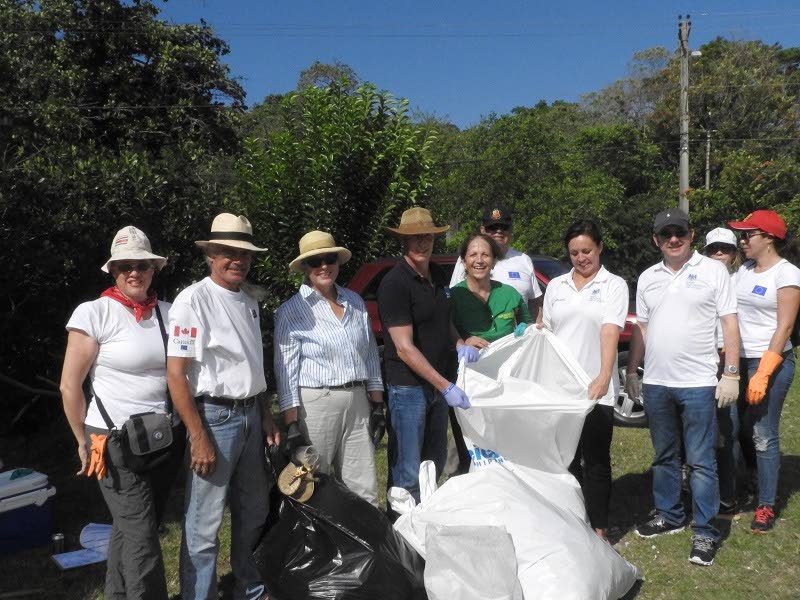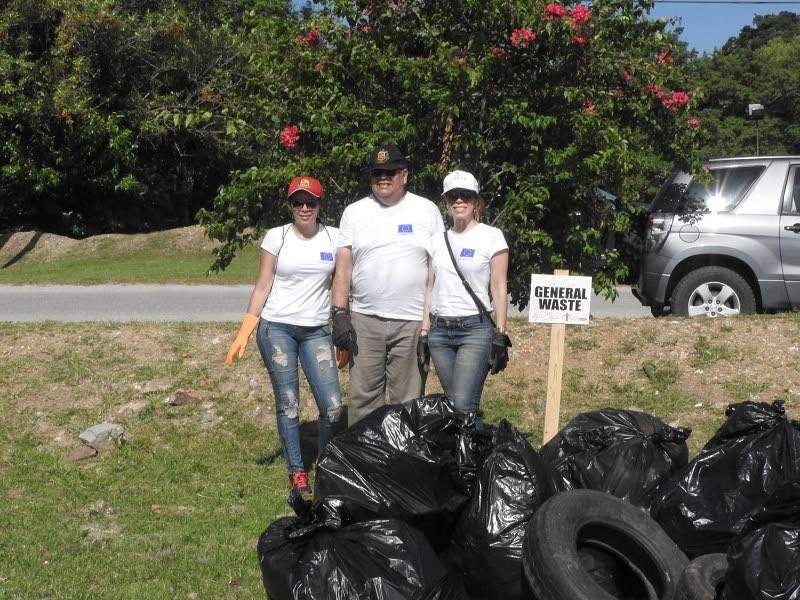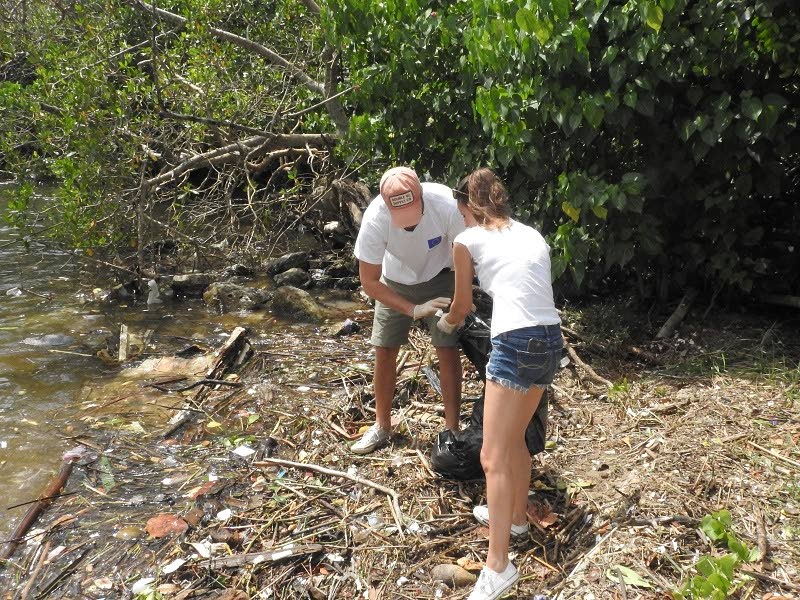Diplomats, citizens clean up beach

RESEARCH has shown that if we do nothing, by 2050 there will be more plastic in the sea than fish. A very sobering notion – and one that does not even consider the volume of plastic that will be in the fish that will be on our tables.
Marine litter is more than just a problem; it is a crisis – and one that needs to be tackled on a global level. The European Union (EU) was happy heed the call of the Caribbean Network of Integrated Rural Development – local coordinators for the local International Coastal Clean-up – to support this year's event and work alongside Angostura Ltd, as well staff from the O2 Park to clean up Hart's Cut Beach in Chaguaramas.
Also joining the EU was a large group of volunteers, which included the ambassadors of the UK, Canada and Peru; the Mexican chargé d'affaires, the chief of mission of the UNHCR and the deputy head of mission of the Embassy of the Kingdom of the Netherlands.

The international representation at this year's clean-up was a clear indication of not only the gravity of the situation that is present with the pollution of our oceans, but also symbolic of the unity of effort that is necessary to address the problem. Much of the litter that appears on our beaches are single use plastics – bottles, food containers, straws, utensils, cups. Styrofoam is also a big problem.
Last year the EU had the opportunity to host the Our Oceans conference in Malta –which has as its key objective, to increase as well as enhance the collaboration and partnership between various ocean stakeholders, and to translate these into concrete and actionable commitments. This year the EU will once again participate and lend its full support to this year's hosts, Indonesia. This year's event, aptly titled Our Ocean Our Legacy, will take place in Bali, on October 29 and 30.
Ambassador Biesebroek said, "The EU was pleased to support, not only the clean-up of this particular beach, but also to provide much needed support where necessary around the world to deal with the grave challenge of marine litter. It is important for all of us to mobilise to protect our oceans and take steps to reduce the ten million tonnes of garbage that is dumped in the oceans each year."
But where does all this waste come from and what else can we do to combat it? Apart from responsible disposal of trash and more concerted efforts to recycle and reuse, there is also the strategy, already adopted in the EU, to ban and reduce as far as possible single use plastics which make up 70 per cent of all marine litter items.
The trash in our oceans have no border – what is dumped in one part of the world can surface in another and ultimately polluted oceans affect us all. The EU, therefore, will continue to work with partners here in TT and around the world to combat the challenge of marine litter.


Comments
"Diplomats, citizens clean up beach"